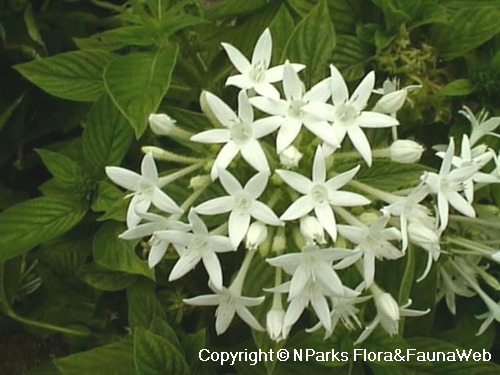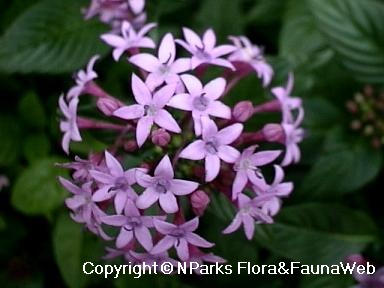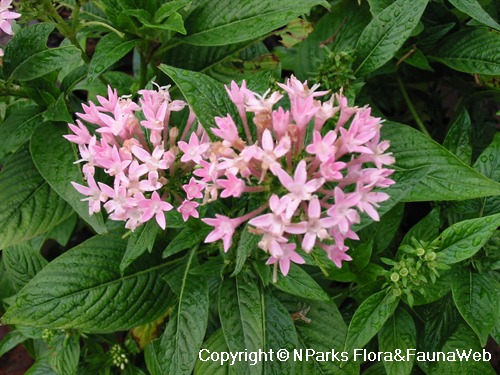.jpg)
Back
Pentas lanceolata 'Carnea'
| Family Name: | Rubiaceae |
| Synonyms: | Pentas carnea |
| Common Name: | Egyptian Star Cluster |
Name
Classifications and Characteristics
| Plant Growth Form | Shrub |
|---|
Description and Ethnobotany
| Growth Form | Herbaceous perennial or sub-shrub growing up to 1.3 m tall and 0.6 m wide. |
|---|---|
| Foliage | Dark green, opposite leaves are narrowly ovate to lanceolate with entire leaf margin (8 - 14 cm long). Leaves are deeply veined and pubescent (hairy). |
| Flowers | Reddish purple, star-shaped flowers are 5-petalled with a white throat. Large, terminal clusters known as corymbs are composed of about 20 - 40 flowers. This species is free-flowering. |
| Fruit | Dry, dehiscent fruits are known as capsules (4 - 5 mm long). |
| Associated Fauna | This cultivar is a butterfly nectar plant. |
| Cultivation | This fast-growing cultivar is easy to grow. It should be planted in fertile, well-drained soil that is enriched with compost and organic matter to retain soil moisture. Allow the soil to dry slightly before re-watering. This cultivar blooms best when grown in full sun, but it also flowers in shade. This plant is heat tolerant up to Feed plants every month with a balanced fertilizer at half-strength. To propagate by seed, sow the seeds on the soil surface and germination will occur in 5 - 12 days. |
| Etymology | The genus "Pentas" is derived from a Greek word that means 5 ("pente"). It may refer to the 5-petalled flowers that occur in this genus. The species epithet "lanceolata" refers to the lanceolate (lance-shaped) leaves. |
Landscaping Features
| Desirable Plant Features | Ornamental Flowers |
|---|---|
| Landscape Uses | Flowerbed / Border, Container Planting |
| Thematic Landscaping | Butterfly Garden |
Fauna, Pollination and Dispersal
| Fauna Pollination Dispersal Associated Fauna | Butterfly-Attracting (Flower Nectar) |
|---|
Plant Care and Propagation
| Light Preference | Semi-Shade, Full Sun |
|---|---|
| Water Preference | Lots of Water |
| Rootzone Tolerance | Well-Drained Soils, Fertile Loamy Soils |
| Propagation Method | Seed, Stem Cutting |
Foliar
| Mature Foliage Colour(s) | Green |
|---|---|
| Mature Foliage Texture(s) | Hairy / Hirsute, Raised / Sunken Veins |
| Foliar Shape(s) | Non-Palm Foliage |
| Leaf Area Index (LAI) for Green Plot Ratio | 4.5 (Shrub & Groundcover - Dicot) |
Image Repository
Others
| Master ID | 1024 |
|---|---|
| Species ID | 2318 |
| Flora Disclaimer | The information in this website has been compiled from reliable sources, such as reference works on medicinal plants. It is not a substitute for medical advice or treatment and NParks does not purport to provide any medical advice. Readers should always consult his/her physician before using or consuming a plant for medicinal purposes. |

.jpg)
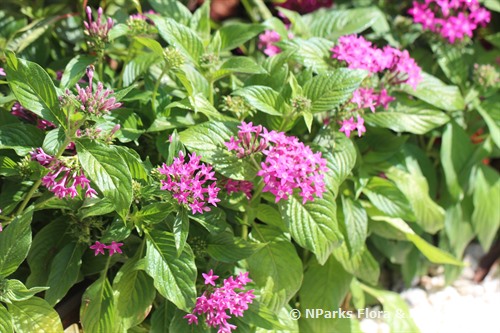
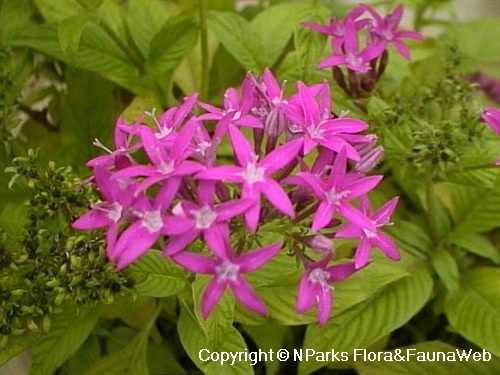
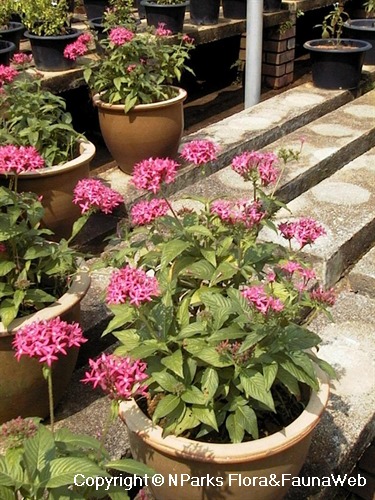
.jpg)
